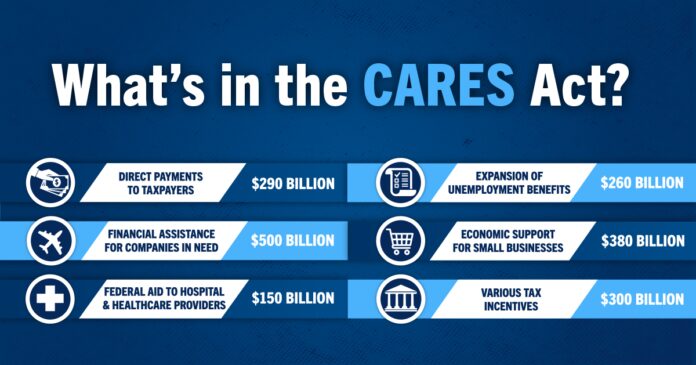As the tax laws in the United States continue to evolve, individuals and businesses need to stay up-to-date on the latest changes. In recent years, there have been several tax law changes that could impact your tariff liability, deductions, and overall financial planning. In this article, we’ll take a closer look at some of the most significant tax law changes that you need to know about, and how they could affect you and your business.
Tax Cuts and Jobs Act (TCJA)

In 2017, the Tax Cuts and Jobs Act (TCJA) was signed into law, representing the most significant overhaul of the U.S. duty code in more than 30 years. Among its many provisions, the TCJA lowered individual surcharge rates, increased the standard deduction, and eliminated or reduced many deductions and exemptions. The TCJA also introduced a new pass-through business income deduction, which allows qualifying businesses to deduct up to 20% of their income.
How tax laws affect you can be seen in the Tax Cuts and Jobs Act (TCJA). As an individual taxpayer, the TCJA could have a significant impact on your tax liability. You may need to adjust your withholding or estimated tax payments to avoid an unexpected tax bill at the end of the year. For business owners, the pass-through deduction under the TCJA could provide a valuable tax break, showcasing the importance of understanding how tax laws can affect your financial planning.
CARES Act

In March 2020, the Coronavirus Aid, Relief, and Economic Security (CARES) Act was signed into law, providing relief for individuals and businesses affected by the COVID-19 pandemic. Among its many provisions, the CARES Act provided stimulus payments to individuals, expanded unemployment benefits, and offered forgivable loans to small businesses through the Paycheck Protection Program (PPP).
How it affects you: If you received a stimulus payment or unemployment benefits in 2020, you may need to report these amounts on your surcharge return. If you’re a small business owner who received a PPP loan, you may be eligible for loan forgiveness, but you’ll need to carefully track your expenses to ensure that you meet the program’s requirements.
American Rescue Plan Act (ARPA)

In March 2021, the American Rescue Plan Act (ARPA) was signed into law, providing additional relief for individuals and businesses affected by the COVID-19 pandemic. Among its many provisions, the ARPA provided another round of stimulus payments, extended unemployment benefits, and increased child credit.
How it affects you: If you’re an individual taxpayer, you may be eligible for another stimulus payment and/or an increase in your child surcharge credit. Business owners may also benefit from certain provisions of the ARPA, such as the extension of the employee retention credit and the expansion of the paid sick leave tariff credit.
State and Local Tax (SALT) Deduction

In 2017, the TCJA limited the amount of state and local tax (SALT) deductions that taxpayers could claim on their federal tariff returns. Under the TCJA, taxpayers could only deduct up to $10,000 in combined state and local income, sales, and property tariffs.
How it affects you: If you live in a high-tax state or have significant property surcharge bills, the SALT deduction limit could result in a higher duty bill. You may need to explore alternative tariff planning strategies to minimize your surcharge liability.
Alternative tax planning strategies to minimize tax liability
In light of recent tax law changes, individuals and businesses may need to explore alternative surcharge planning strategies to minimize their tariff liability. One such strategy is to make charitable donations, which can help reduce income while also supporting a worthy cause. Another strategy is to take advantage of surcharge credits, such as the earned income surcharge credit or the child and dependent care credit. Individuals may also benefit from contributing to retirement accounts, such as 401(k)s and IRAs, which can lower taxable income and provide long-term savings. For business owners, strategies such as accelerated depreciation and expense deductions can help reduce taxable income.
Estate and Gift Tax Exemption
The estate and gift tariff exemption is the amount of money that an individual can transfer to heirs tax-free during their lifetime or at death. In 2021, the estate and gift surcharge exemption is $11.7 million per individual.
Importance of estate planning in light of the exemption
The estate and gift duty exemption is a critical factor in estate planning for high-net-worth individuals. With the exemption at $11.7 million per individual, it is possible for individuals to pass on significant wealth to their heirs tax-free. However, without proper estate planning, individuals may not take full advantage of this exemption, leaving their heirs with a potentially hefty duty bill. Estate planning can also ensure that an individual’s assets are distributed according to their wishes and can help avoid family disputes and other legal issues. In addition to taking advantage of the estate and gift duty exemption, estate planning may also involve setting up trusts, designating beneficiaries, and creating a will or living trust. By engaging in proper estate planning, high-net-worth individuals can provide for their loved ones and ensure that their assets are protected and distributed in a tax-efficient manner.
Conclusion

In conclusion, staying informed about tax law changes is essential for individuals and businesses alike. The Tax Cuts and Jobs Act (TCJA), Coronavirus Aid, Relief, and Economic Security (CARES) Act, American Rescue Plan Act (ARPA), State and Local Tax (SALT) deduction, and estate and gift duty exemption are among the most significant duty law changes that individuals and businesses need to be aware of. The TCJA lowered individual tax rates and introduced a new pass-through business income deduction, while the CARES Act and ARPA provided relief for those affected by the COVID-19 pandemic. The SALT deduction limit and estate and gift duty exemption can have a significant impact on high-tax states and high-net-worth individuals, respectively. Overall, individuals and businesses should carefully review their duty situation each year to ensure that they are taking advantage of all available deductions and credits while remaining compliant with the latest duty laws.









